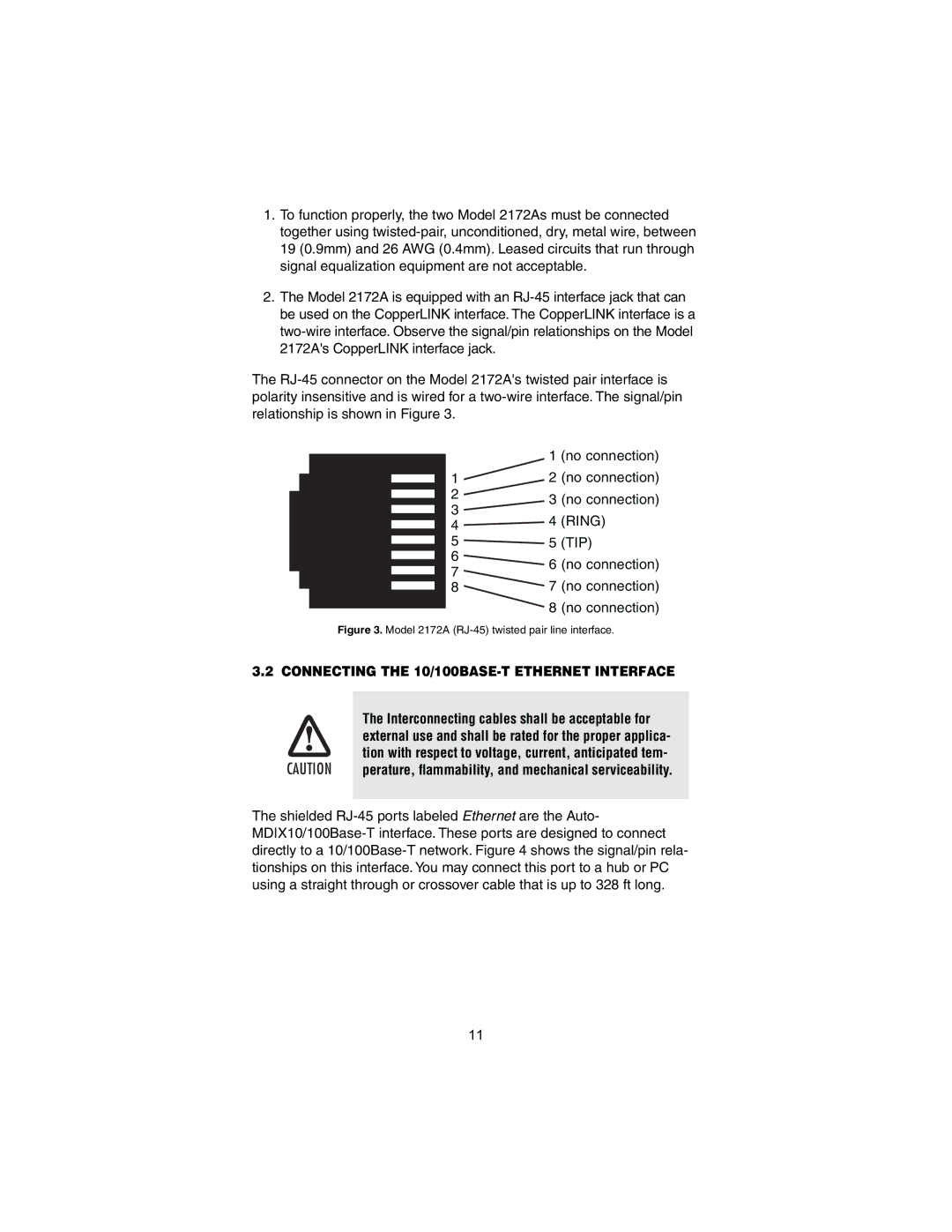
1.To function properly, the two Model 2172As must be connected together using twisted-pair, unconditioned, dry, metal wire, between 19 (0.9mm) and 26 AWG (0.4mm). Leased circuits that run through signal equalization equipment are not acceptable.
2.The Model 2172A is equipped with an RJ-45 interface jack that can be used on the CopperLINK interface. The CopperLINK interface is a two-wire interface. Observe the signal/pin relationships on the Model 2172A's CopperLINK interface jack.
The RJ-45 connector on the Model 2172A's twisted pair interface is polarity insensitive and is wired for a two-wire interface. The signal/pin relationship is shown in Figure 3.
| | 1 | (no connection) |
| 1 | 2 (no connection) |
| 2 | 3 (no connection) |
| 3 |
| 4 | (RING) |
| 4 |
| | |
| 5 | 5 | (TIP) |
| 6 | 6 (no connection) |
| 7 |
| 7 (no connection) |
| 8 |
8 (no connection)
Figure 3. Model 2172A (RJ-45) twisted pair line interface.
3.2 CONNECTING THE 10/100BASE-T ETHERNET INTERFACE
The Interconnecting cables shall be acceptable for
external use and shall be rated for the proper applica-
tion with respect to voltage, current, anticipated tem-
CAUTION perature, flammability, and mechanical serviceability.
The shielded RJ-45 ports labeled Ethernet are the Auto- MDIX10/100Base-T interface. These ports are designed to connect directly to a 10/100Base-T network. Figure 4 shows the signal/pin rela- tionships on this interface. You may connect this port to a hub or PC using a straight through or crossover cable that is up to 328 ft long.

